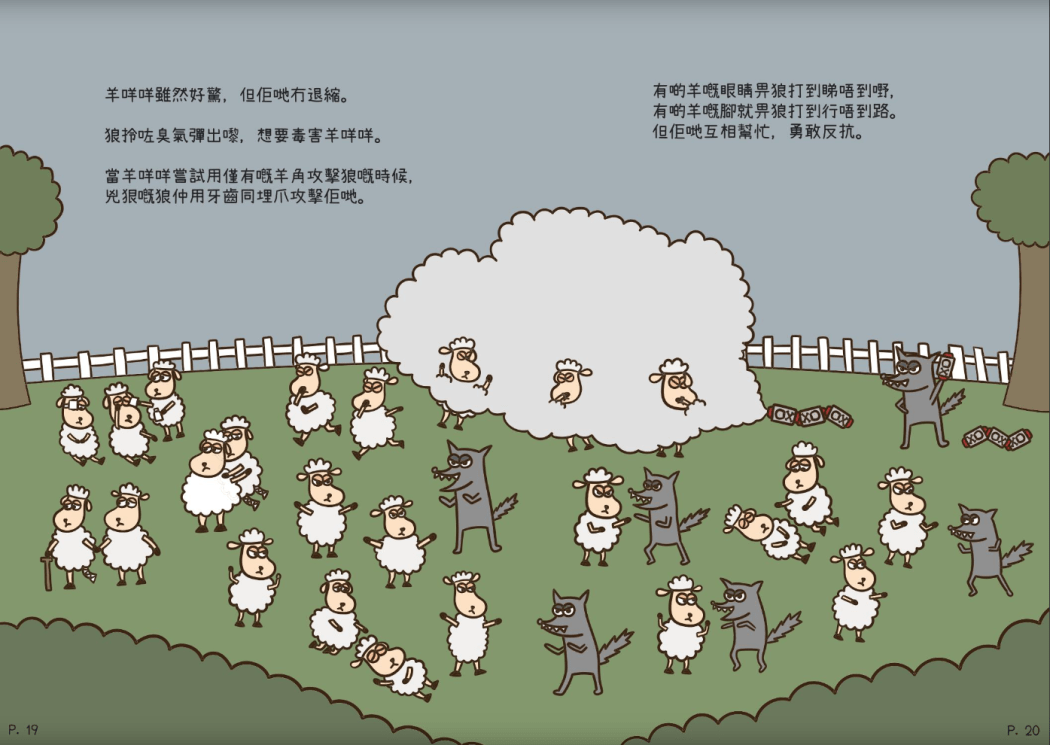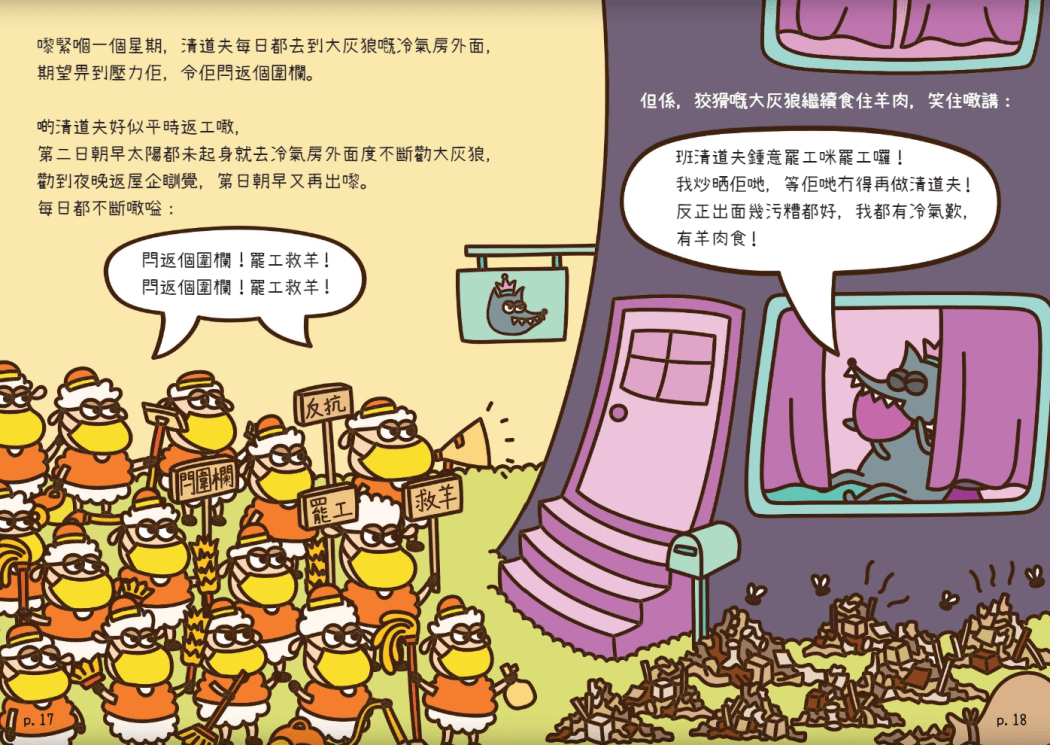Hong Kong’s national security police say five people arrested over the publication of a children’s picture book featuring sheep and wolves were trying to stir up hatred against the city’s government.
Senior Superintendent Steve Li told a press conference on Thursday the books attempted to simplify “political issues not comprehensible by children” and to “beautify illegal behaviour.” The book disparaged “kind-hearted” sheep as well as the wolves, he said.

The comments came after police arrested five people on suspicion of “conspiring to publish seditious publications” under section 10 of the Crimes Ordinance.
Police said the chairperson, deputy chairperson, secretary, and treasurer of the General Union of Hong Kong Speech Therapists were among the five arrested on Thursday morning. Police seized around 550 children’s books, and a large quantity of leaflets, computers and mobile phones.
The contents in question included three children’s books based on the anti-extradition bill protests, the 12 Hong Kong pro-democracy activists arrested as they tried to flee the territory by speedboat to Taiwan, and a brief strike by hospital workers calling for the border with mainland China to be completely sealed at the beginning of the coronavirus pandemic.
Seditious children’s book
Li said the first book, Guardians of the Sheep Village, compared sheep to Hong Kong people and wolves to mainland Chinese people. Displaying the books for the press, he said the main point was that the wolves in sheep’s clothing made the lives of the sheep worse.
“The book also introduced that the sheep had to use their horns to attack. A sheep is such a kind-hearted animal, and they [producers of the book] have to say that it has some attack ability, and has to commit some violent acts,” said Li.

The second book in question, 12 Warriors of the Sheep Village, attempted to incite hate against the judicial system, said Li, as the book said that the 12 sheep would be killed after they were targeted for taking part in a defensive war.
“The book also mentioned that the sheep would become a meal after they were caught in the wolves’ village,” said Li. “…mainly they want to incite hate against the regime.”

The third book, Dustman of the Sheep Village, said that “the sheep were very clean and the wolves were very dirty,” Li said.
“It implied that some viruses were brought in this way,” the senior superintendent said. “The book said that because of this reason, they hoped to close the border…It’s clear that [they] hoped to create hate leading our government to the current situation.”

The books were published between June last year and March this year. The union also organised a book club meeting last month. Li urged stores to notify the police of any remaining copies, and said the stores would be listed as witnesses to the case.
The senior superintendent said that children who were taught that “white is black and black is white” might develop anti-social or criminal tendencies.
Asked whether such classics as George Orwell’s 1984 and Animal Farm are now illegal in Hong Kong, Li said the two titles were different from the children’s books in question, which aimed to incite hate.

First convictions under the offence carry a maximum penalty of two years in prison. Police said some HK$160,000 of the union’s assets had also been frozen.
The Hong Kong Confederation of Trade Unions said that the case “sounded the death knell of artistic creation freedom,” and showed that “the law is a means for the government to spread fear.”
“This explains why a lot of creators started self-censoring, or even took their existing creations off the shelf,” it said.
Support HKFP | Policies & Ethics | Error/typo? | Contact Us | Newsletter | Transparency & Annual Report | Apps
Help safeguard press freedom & keep HKFP free for all readers by supporting our team

LATEST FROM HKFP
HKFP has an impartial stance, transparent funding, and balanced coverage guided by an Ethics Code and Corrections Policy.
Support press freedom & help us surpass 1,000 monthly Patrons: 100% independent, governed by an ethics code & not-for-profit.










